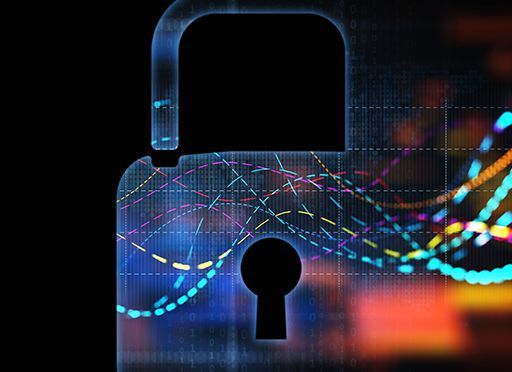What happens when creativity meets copyright? Cory Doctorow lays out the issues with clarity and conviction, while warning that most protective locks get broken and that even if artists really could protect their work, most of them would still need a day job.

A Kind of Genius
Protecting creativity
Journalist and science fiction author Cory Doctorow has long embraced questions over online rights, copyright and access. Information…is his platform for raising what he regards as crucial issues regarding copyright, payment to creatives and regulatory interference. Happily, Doctorow is a writer of great wit, deadpan delivery and sophistication, which means he states the salient issues with clarity and simplicity. Almost nobody does this because almost nobody can. It’s a kind of genius and a great gift to the reader.
A journalist, blogger and curator of the website Boing Boing, Doctorow previously wrote Down and Out in the Magic Kingdom; the award-winning short story collection A Place So Foreign and Eight More; Walkway, and the Hugo-winning bestseller Little Brother. His most recent sci-fi collection is Radicalized: Four Tales of Our Present Moment.
He offers no filler or message softening in Information Doesn’t Want to Be Free. Doctorow launches right into the heart of the matter. Creative artists, he insists, don’t care about copyright. They want to make things and get paid for them. But, he cautions, artists must understand how the internet shapes reality: very few artists get rich, a few make a living; most make nothing. Boom – there it is.
Whatever kind of arts career you’re hoping for, the odds are against you. Pretty much everyone who ever set out to earn a living (or part of a living) in the arts failed.Cory Doctorow
Artists need copyright. The copyright mechanism guides how buyers or intermediaries compensate creative creatives, how well, and what sort of work they will compensate – or forbid. The internet spreads copies and fame. People communicate online by “sending copies.” Doctorow characterizes the internet as “an audience machine.”
He addresses the power of intermediaries at some length. He illustrates one power by pointing out that if a streaming service doesn’t promote a movie, the movie suffers. He revels in the fact that the internet diffuses the power of such intermediaries by providing multiple alternative ways for people to access creative works. Prior to the internet, a writer’s best advertisement for a book was “the book itself.” Today, potential buyers can browse a nearly infinite array of options. Doctorow is not on the side of the intermediaries. He champions the creatives and wants to preserve all their options.
Theft versus sales
Doctorow explains this complex situation clearly for the layperson. He covers without too much detail the functioning of The World Intellectual Property Organization (WIPO), which deals with major international copyright treaties. The WIPO Copyright Treaty (WCT), includes an anti-circumvention provision, a law against trying to get past a digital lock. This – in theory – prevents people from making copies that infringe on copyrights. But Doctorow worries less about copiers than he does about anti-circumvention itself and the new problems it creates.
Most digital locks that anyone cares about are broken in a day or two.Cory Doctorow
He lays out the basics: anti-circumvention laws prohibit people from “unscrambling” digital materials unless they honor the distributor’s requirements. Those who make digital locks market them as copy protection devices. Anti-circumvention then requires people to buy specific technology to gain access to a creative work. If people can’t buy things, they download them, even if that means breaking the law, thus, Doctorow explains, digital locks never curtail piracy, only sales.
Power to the people
Doctorow asserts that creative people maintain power because buyers have multiple ways to send creators money and creators have multiple ways to market their creations. But, he reports, media companies retain certain advantages. Their economies of scale enable them to publicize and publish creative works more cheaply than creators can. They have capital to invest and a tested workflow. Doctorow stresses that independent creators need such intermediaries. The fewer intermediaries, he recognizes, the less competition. To sell something you’ve created, you need intermediaries. For example, Doctorow cites how an author who has written a book needs payment processing, email, ISPs, and so on.
Digital locks are roach motels: Copyrighted works check in, but they don’t check out.Cory Doctorow
The consolidating ISP industry, Doctorow warns, is reaching agreements with other branches of the market, gaining more power to censor creators. Regulation will make using the internet more expensive. He reveals that starting companies will become even harder. A more disorganized playing field benefits content makers. Fewer channels means setting up “choke points” to separate audiences and creators. Doctorow regards this situation as catastrophic.
Fighting for individual artists
Doctorow understands that people say they’re fighting over what information “wants,” but he maintains they’re really fighting about people, how information affects people, and who benefits or profits from it. The solution is not to get rid of copyright law, but to create better copyright law. The author’s fundamental position is that copyright should regulate individual – not industrial – activity.
Doctorow notes that technologies used to be distinct: Governments regulated airplanes without affecting cars. Today, computers make up the world. When people regulate or violate computers, it affects all areas of society. Doctorow is aflame at the revelation – a fact which emerged from the Edward Snowden controversy – that tech companies built intentional flaws into their products so spy agencies could access them.
Copyright laws must evolve changing technologies.
Copying will become easier. Regulations can’t treat the internet and its computers like a variation on cable television. Doctorow avows that copyright must deal with copying as a fact. Rules that benefit only distributors or publishers choke creation. Such regulations matter more now and affect everyone.
The consequences of losing internet access…are getting graver and graver.Cory Doctorow
Doctorow wrote this book to create an informed creative class of people who will fight for their rights. He states repeatedly that passivity means the powers that be will take control away from creatives. This is a fundamental primer that every artist, student and online participant should read. The infinite online universe has long needed a road map to copyright issues, and Doctorow provides it with elegance, readability and deft phrase-making.






